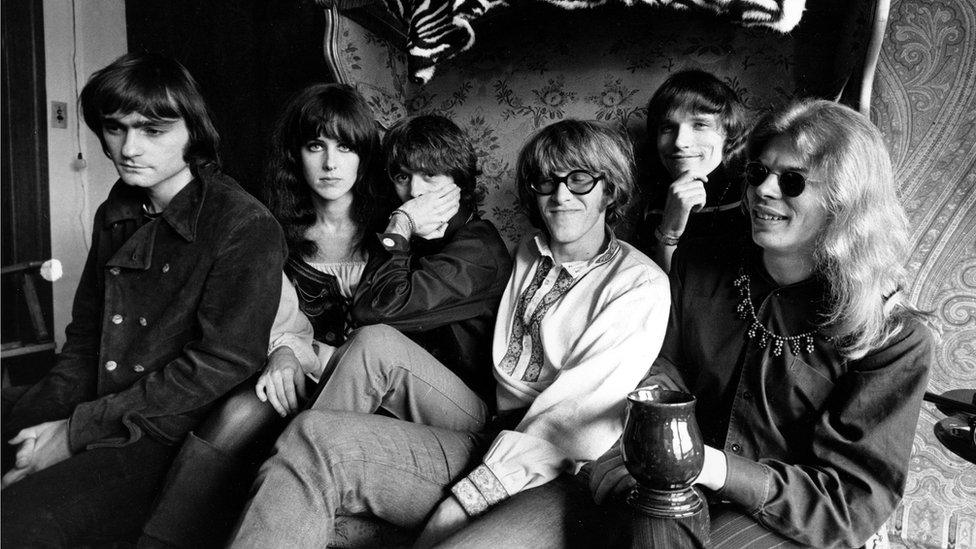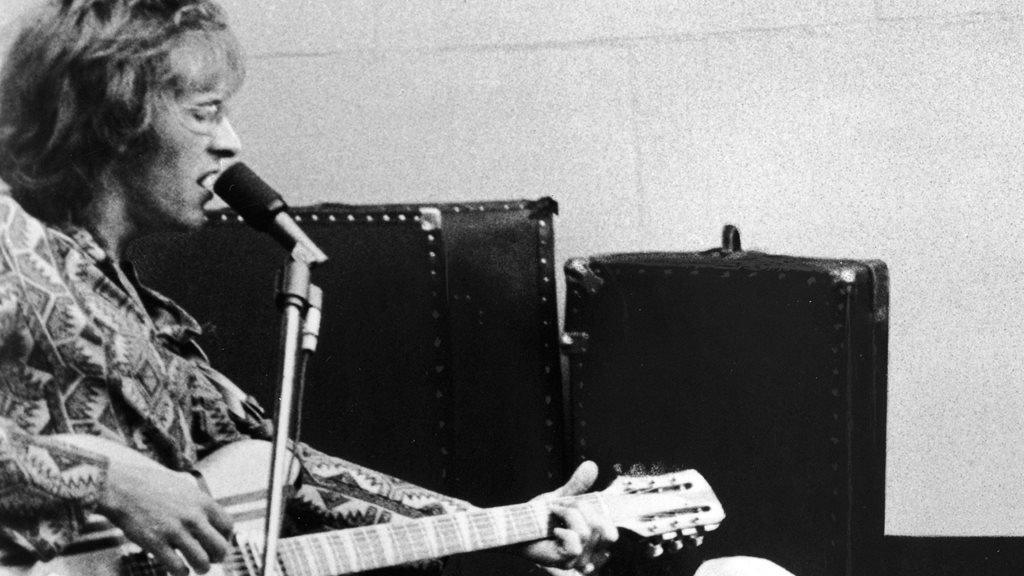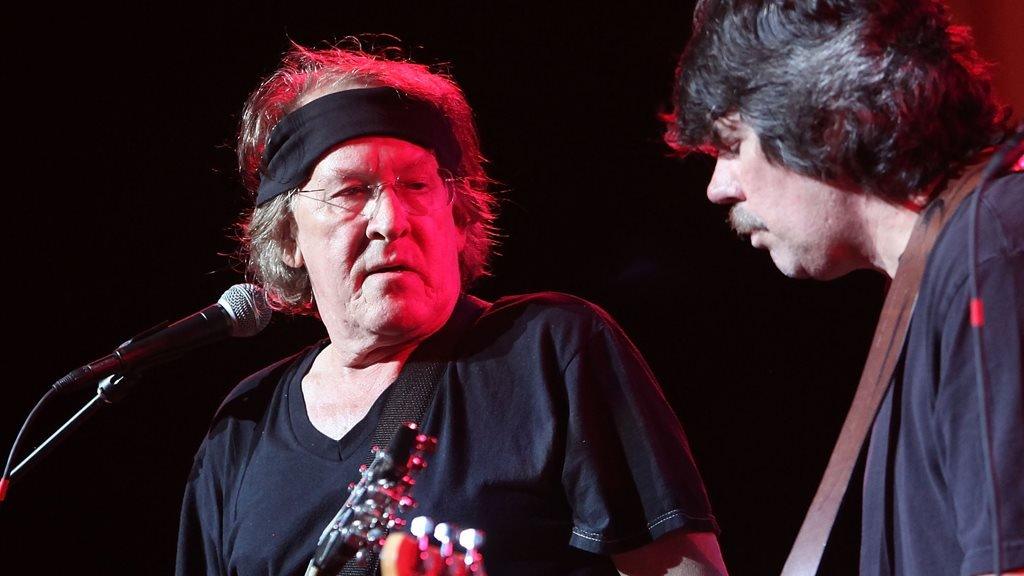Jefferson Airplane's Paul Kantner dies aged 74
- Published

Along with The Grateful Dead, Jefferson Airplane were one of the most successful San Francisco bands of the 60s
Paul Kantner, a founding member and singer-guitarist of rock band Jefferson Airplane, has died aged 74.
His death was confirmed by publicist and former girlfriend Cynthia Bowman, who said he died of multiple organ failure and septic shock.
Although the band was fronted by vocalists Grace Slick and Marty Balin, Kantner was considered a driving force.
With songs like Somebody To Love and Volunteers, the San Francisco group helped pioneer the psychedelic sound.
They formed in 1965 when folk artist Balin decided to create a rock group in response to the Beatles-led British Invasion.
Kantner, a college drop out who was already a familiar face on the San Francisco circuit, was the first person he approached.
"He was the first guy I picked for the band and he was the first guy who taught me how to roll a joint," Balin wrote on Facebook, external after learning his death.
"And although I know he liked to play the devil's advocate, I am sure he has earned his wings now," he said.

Kantner and his band were inducted into the Rock and Roll Hall of Fame in 1996
The band quickly attracted a local following - and when fledgling promoter Bill Graham opened his legendary Fillmore Auditorium, Jefferson Airplane served as the first headliner.
Signed to RCA Records for the then-princely sum of $25,000, the band scored five gold albums in the US, including 1967's Surrealistic Pillow and 1968's Crown of Creation in their first run of success.
Early hit White Rabbit combined the story of Alice In Wonderland with a drug trip; but later songs adopted the political stance of the hippie movement, with 1969's We Can Be Together declaring: "We are obscene, lawless, hideous, dangerous, dirty, violent and young... but we should be together".
The band advocated sex, psychedelic drugs, rebellion and a communal lifestyle, operating out of an eccentric house near Haight-Ashbury.
Its members supported various political and social causes, tossed out LSD at concerts and played at both the Monterey and Woodstock festivals - where the band's set was scheduled for Saturday evening but wound up taking place at 08:00 the next morning.
Their badges and bumper stickers read "The Jefferson Airplane Loves You" - but their idealism took a knock at the Rolling Stones' Altamont Festival, where a group of Hells Angels, who had been hired as security, killed a spectator and beat Balin unconscious.
The group began to fragment soon after, with Kantner releasing a well-received solo album, Blows Against the Empire, and other members forming the blues-rock band Hot Tuna.
Kantner rejoined Balin and Slick, who was by then his wife, in 1974 under the name Jefferson Starship. They continued to have success until the 1980s, against a backdrop of litigation with an old manager and former band members.

The musician continued to play with various incarnations of his old band until recently
The guitarist left in 1984, saying "the band became more mundane and not quite as challenging and not quite as much of a thing to be proud". He then took legal action against the remaining members, forcing them to truncate their name to Starship.
That incarnation of the group later had two global hit singles with Nothing's Gonna Stop Us Now and We Built This City; while Kantner reformed and toured with various versions of Airplane, Starship and his own KBC band in the 1990s and 2000s.
"Our condolences go out to the friends, family and fans of Paul Kantner of Jefferson Airplane on the news of his passing," members of the Doors wrote on their Facebook page, external.
"Music would not be the same without the sounds of The Doors and Jefferson Airplane, which both contributed so heavily to the signature sound of the sixties and seventies."
The Recording Academy, which is due to award Jefferson Airplane a lifetime achievement Grammy this year, mourned Kantner as "a true icon" of the 1960s music scene in a statement.
Kantner is survived by three children; sons Gareth and Alexander, and daughter China, a former MTV presenter.
Funeral arrangements will be announced at a later date.
